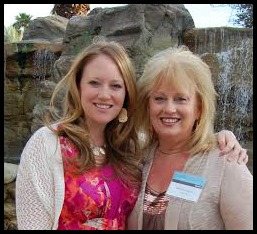Upgrade Your Graduate's Life
In one year, Pam Farrel and her husband had two kids (a son and daughter-in-law) graduate with a Master’s degree, a middle son graduate from university, and a son graduate high school. So how did  they celebrate? They wrote The 10 Best Decisions a Graduate Can Make!
they celebrate? They wrote The 10 Best Decisions a Graduate Can Make!
“We prepared our children for higher education,” Pam said, “by setting aside five ‘dinner and dialogue’ times to discuss key questions.”
Choices are a big part of this UPGRADE blog, so I asked Pam to share how she and her husband encouraged their kids’ wise thinking and choices.
She continues …
We wanted to give them a strong “freshman foundation” for an upgraded future!
Here are the key areas we discussed: The 5 Points of a Shining Star Future.
1. Fitness
We decided to start with what was least emotionally volatile—how to stay in shape emotionally, physically, relationally and spiritually in college. A physically strong body makes for an alert and teachable mind. Help your young adult think and pray through housing options and roommates. Where will they succeed emotionally, spiritually, physically and socially?
Can your young person even afford to go away to college, or is living at home for two years a better option—attending junior college and working to save for the second two years? In this case, talk through house rules with this new “adult” under your roof. Have your student prayerfully list their priorities and rank each variable.
If living in a dorm, how will they stay physically fit and not gain “freshman weight”? Handle stress? Deal with Homesickness? What is the plan for health insurance, doctor and dental visits and vitamins? What’s their work, sleep and study schedule?
2. Finances
Discuss funding. How much will you contribute to education? How much scholarship money is available? Savings? Loans? Grants? How much can he or she work and still achieve well in school?
Introduce the student to the campus financial aid office. Have him or her write a budget, which encourages tithing. Money Management for College Students is a helpful resource from Crown Financial ministries.
In our family, college is a privilege, not a right.
Parental help is in direct correlation to growth we see in our kids’ moral, spiritual and community life. We will not fund sin.
Drinking, drug use, irresponsible behavior, having sex outside of marriage, not attending church and not being involved in an on-campus Christian group are all reasons for us to withdraw financial support.
3. Future
Discuss career goals, internships, work experience, skill, talent and vocational inventory tests and surveys. Life Pathways by Crown Christian Financial Ministry is relatively in expensive comprehensive inventory (www.cfcministry.org).
When will you expect a declared major?
Help your student research schools with the best reputation in their field. Clubs and organizations can also benefit a career path; and businesses near the university, study abroad, and volunteering can extend employment opportunities.
Discuss how to develop relationships with professors, and use of academic counseling and the college catalog to create a plan for graduation. Be honest about what leadership skills and areas of personal growth they still need to develop, and brainstorm together about how they can learn and acquire those skills.
4. Friends
Relationships are the centerpiece of a college student’s life. We had lunch dates with our sons to discuss dating standards, how to find friendships with people of similar values, and how to find mentors and reliable leaders to follow. We discussed how our relationship with them would going to change; and we helped facilitate this transition by giving them increased responsibilities.
We also brainstormed with them ways to expand their social circle to gain a broader world view—to spend time with people from a variety of socio-economic backgrounds, cultures and countries. We encouraged wise review of campus clubs, organizations and social options.
5. Foundations
This concerns the important spiritual decisions for their future. Honoring God is key.
Our family motto is: "Those who honor God, God honors" (1 Samuel 2:30).

Ask how they intend to finding a local church to attend. What campus groups will they join? What factors will make up their decisions? (Having a doctrinal statement available and seeking your pastor’s or youth pastor’s opinion is also a wise option.)
Encourage church choice based not just on what they can get from the church, but also what they can give to the church—a place to serve, use their gifts, and mature. Focus on your student’s personal walk with God.
To UPGRADE your grad: Walk alongside your young adult until he or she is solidly walking alongside God.
Which of these areas needs some extra attention before your grad leaves home? It’s not too late! Ask the Lord to help you.
 Pam Farrel and her husband Bill are authors of more than 38 books. Their three sons—all college graduates now—love and serve Christ. To order their graduation book, 10 Best Decisions a Grad Can Make, visit www.Love-Wise.com.
Pam Farrel and her husband Bill are authors of more than 38 books. Their three sons—all college graduates now—love and serve Christ. To order their graduation book, 10 Best Decisions a Grad Can Make, visit www.Love-Wise.com.
 Post a Comment → Posted on
Post a Comment → Posted on  Tuesday, May 20, 2014 at 8:01AM
Tuesday, May 20, 2014 at 8:01AM  College Preparation,
College Preparation,  Graduates,
Graduates,  Graduates' Decisions,
Graduates' Decisions,  Graduation,
Graduation,  Pam Farrel,
Pam Farrel,  Parenting,
Parenting,  Upgrade with Dawn Upgrade Your Life
Upgrade with Dawn Upgrade Your Life  Parenting,
Parenting,  Relationships,
Relationships,  Upgrade - General
Upgrade - General 
















